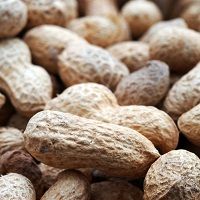Patients, Parents Report Improved QOL Following Peanut Allergy Therapy Trials
The biologic AR101 was previously shown to significantly desensitize peanut allergies in a pediatric and adolescent patient population.

The first potential therapy for peanut allergy desensitization has gained a lot of momentum leading towards its application to the US Food and Drug Administration (FDA) next month.
AR101, a biologic from Aimmune Therapeutics that reported capability to desensitize highly allergic patients about 600 mg of peanut exposure daily, made news with successful long-term cohort analysis presented at the American College of Allergy, Asthma & Immunology (ACAAI) annual meeting in Seattle, WA, this week.
The drug has proven particularly efficacious in a pediatric/adolescent patient population—in a food challenge exit study at the end of the phase 3 PALISADES trial, 67.2% of patients treated with the once-daily oral therapy were capable of ingesting 600-plus mg of peanut without dose-limiting symptom. Comparably, just 4% of patients administered placebo were capable of that ingestion.
Now, more follow-up data on the pivotal PALISADES patient population is backing AR101’s marketing promise. A study centered on assessing patients for treatment satisfaction and the therapy’s impact on quality of life (QOL) show the investigative drug is mostly favorable in treated patients.
Investigators designated a subset of young phase 2 trial participants to complete a pair of treatment satisfaction questionnaires, as well as an optional telephone interview. The Treatment Satisfaction Questionnaire for Medication (TSQM-9) was a parent-completed test scored on a 0-100 scale, while the treatment-specific exit questionnaire (EXIT) assessed the patients’ families on palatability, convenience, adherence, and treatment experience scored on 5- or 7-point Likert scales. The team also assessed interview data for thematic analysis.
At trial’s end, 19 parents and 18 children had completed EXIT, 20 parents completed the TSQM-9, and 9 subjects were interviewed by telephone. Mean patient study duration was 3.5 years, with EXIT scores showing that most patients either almost always or always took the drug as exactly instructed (100% parents; 86% children). The same rate of parents and children agreed with the suggestion that AR101 advantages outweighed the disadvantages.
As per TSMQ-9 scale scores, parents reported mean scores of 76 for effectiveness, 58 for convenience, and 86 for satisfaction—indicating moderate-to-high levels of treatment satisfaction. Qualitative analysis found 5 key areas of QOL positively impacted by trial participation: emotional functioning, social and leisure activities, daily activities, relationships, and independence/supervision.
As the first cohort assessment of patient QOL following a peanut allergy therapy-based trial, investigators concluded positively that long-term treatment with AR101 is associated with overall patient improvements.
Aimmune officials expressed intention this week to submit a drug application for the biologic to the FDA next month, with expectancy it could reach the US market by mid-2019. Excitement for a potential peanut allergy therapy has reached nationally-based organizations with vested interest in a treatment; on Monday, the National Peanut Board submitted a statement to MD Magazine® praising the clinical development of AR101 as “nothing short of remarkable.”
“America’s peanut farmers, through the National Peanut Board, are proud to have supported this work for nearly two decades,” the statement read. “And we salute those researchers, doctors, allergy advocates and allergy families alike whose shared passions got us to this point, and who won’t stop working until we make peanut and all food allergies history.”
The study, "Treatment Satisfaction with AR101 Peanut Allergy Oral Immunotherapy: A Mixed Methods Study," was presented at ACAAI 2018 last week.